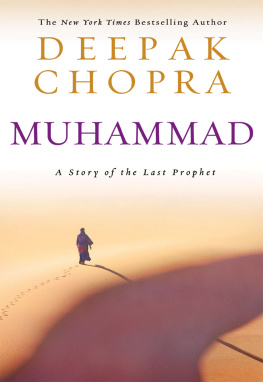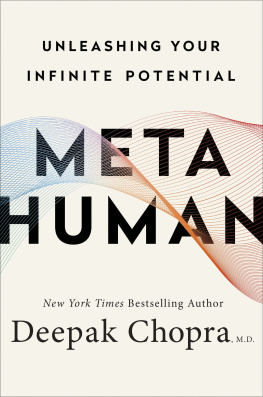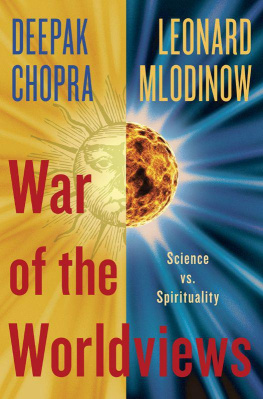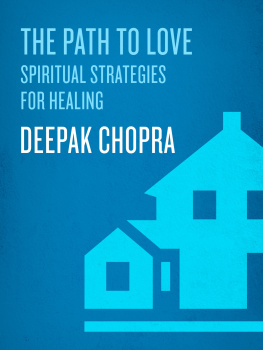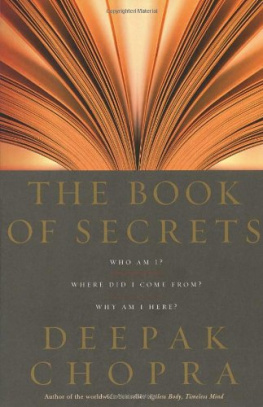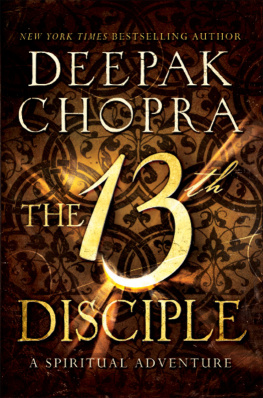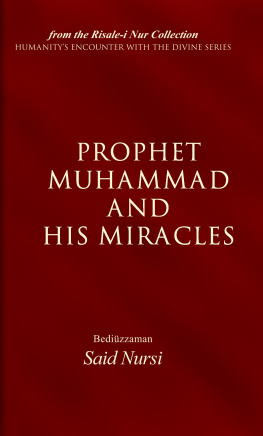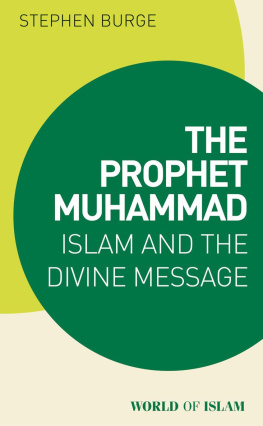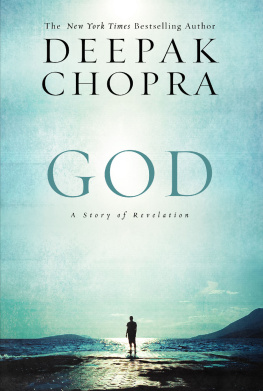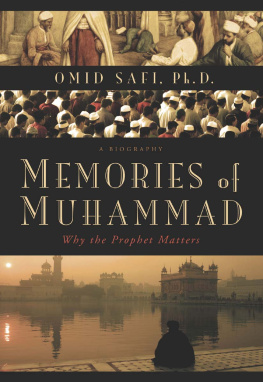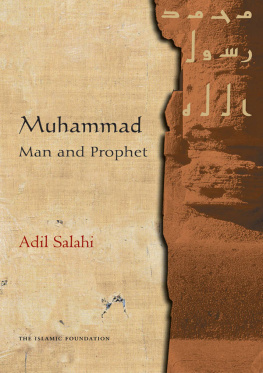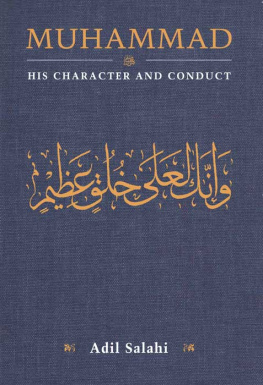A great surprise awaited me when I began writing the story of Muhammad, the last prophet to emerge from the Middle Eastern desertthe endless, bleak, arid land that produced Moses and Jesus. Muhammad has suffered under centuries of disapproval outside the Muslim world. Ours is not the first age to react suspiciously when told by adherents that Islam means peace. That suspicion only turns darker when extremist jihadis become terrorists in Muhammads name.
In his own lifetime, the Prophet fought strenuously against his opponents and led armies into battle for the new faith. I grew up in India among Muslim friends, but even there, where mingled cultures and religions are an ancient way of life, the partition of Pakistan in 1947 led to riots and mass murder on both sides. In the name of truth, believers can easily trample love and peace.
None of that came as a surprise, however. I was determined to be fair to Muhammad and see him as he saw himself in seventh-century Arabiawe can locate his birth in 570 CE, in the middle of Europes Dark Ages, two centuries before Charlemagne was crowned emperor by the pope in 800, almost six hundred years before the spires of Chartres cathedral first pointed heavenward in the twelfth century. Thats where the surprise occurred, because among all the founders of the great world religions, Muhammad is the most like us.
Muhammad saw himself as an ordinary man. His relatives and neighbors didnt part and make way when he walked down the parched dirt streets of Mecca. He was orphaned by the age of six, but otherwise nothing exceptional stands out other than his ability to survive. Because he existed in a fiercely tribal society, Muhammad had numerous cousins and other males of the Hashim clan surrounding him as his extended family. There was no mark of divinity on him (except those invented by later chroniclers as Islam prospered and spread). He grew up to be a merchant who happened to marry well, taking a rich widow, Khadijah, as his wife, even though she was fifteen years his senior. He traveled in caravans to Syria one season and Yemen the next. Mecca owed its prosperity to the caravan trade. Even though these sojourns were beset with dangerMuhammads handsome, favored father, Abdullah, had died on his way home from one tripmerchants of Muhammads class routinely made journeys across the desert that lasted several months at a time.
What is extraordinary is that there are so many marks of common humanity in Muhammads transformation. Jesus is being exalted when he is called the Son of Man; Muhammad deliberately blends in when he calls himself a man among men. He could neither read nor write, but that was common enough, even among the well-to-do. He had four daughters who survived birth and two sons who died in infancy. Doing without an heir was unthinkable, and so he took the unusual step of adopting a freed slave boy, Zayd, as his son. Otherwise, it is inexplicable that God should reach down into a settled husband and fathers life to speak through him. The most remarkable fact about Muhammad is that he was so much like us, until destiny provided one of the greatest shocks in history.
In the year 610 CE , Muhammad, a forty-year-old businessman known as Al-Amin, the trustworthy, marched down from the mountainsor in this case a cave in the semi-verdant hills surrounding Meccalooking shattered and frightened. After literally hiding under the covers to regain his wits, he gathered the few people he could trust and announced something unbelievable. An angel had visited him in the cave, where Muhammad regularly went to escape the corruption and distress of Mecca. He sought peace and solitude, but both were destroyed when Gabriel, the same archangel who visited Mary and guarded Eden with a flaming sword after God banished Adam and Eve, abruptly ordered Muhammad to recite.
The precise word is important, because to recite is the root word of Koran (or Quran). Muhammad was thunderstruck at this angelic command. He wasnt someone who joined in the practice of public recitation, for which the Bedouin were famous. As a boy he had been sent to live with nomadic tribes in the desert, a common practice among prosperous Meccans. It was felt that the purity and hardship of desert life was good for a child. At the very least it took him away from the foul air and depraved city ways of Mecca. Among the Arabs the Bedouin were considered to speak the purest Arabic, but for the rest of his life Muhammad would betray his sojourn among the nomads, which lasted from his birth to the age of five, by having a rustic accent. The Bedouin were also famous as storytellers. They recited long legendary tales in praise of tribal heroes who conducted daring raids to seize camels and women from their warring neighbors. But Muhammad sat on the periphery as a listener rather than a participant, and he remained mute, so far as history is concerned, up to the moment when Gabriel found him.
The angel couldnt persuade Muhammad easily. He had to lock him in a tight embrace three timesa mythical, mystical numberbefore he agreed to recite. What came out of the Prophets mouth were not his own words. To him and to those who began to believe his message, the fact that Muhammad had never recited in public proved that his words came from Allah. To this day, the Arabic in which the Koran is couched is singular, creating its own style and expressive world. Outside Islam, the only suitable comparison is probably the King James Bible, whose language resonates with English speakers as if spoken by either God or a chosen one who had been gifted with a divine level of utterance.
Because Muhammad never expected to be divinely inspired, the more tragic our suspicion and fear of Islam today. The pre-Islamic world feels much farther away than even the world of the Old Testament. Slaves were kept and cruelly abused. So were women, and unwanted baby girls were routinely left to die on a mountainside after they were born. Arabs used knives to settle even petty arguments, and they thought it honorable to murder men from neighboring tribes. Revenge was something to be proud of.
None of these ways, barbaric as they are, belong to Arabs alone. All can be found in various other early cultures. But Islam has been branded with barbarity in a unique way, in part because, in its zeal to maintain the Prophets world as well as his word, the customs of antiquity have been preserved into modern times. I portray Mecca as it really was, which means in all its harshness and brutality. To lessen the impact of our modern-day judgments, I use multiple narrators to share in telling the story. My storytellers are women and men of every caste, slaves and rich merchants, believers and skeptics, idol worshipers and eager followers of Muhammads message alike. The first people to hear the Koran had as many reactions to it as you or I would if our best friend collared us with a tale about a midnight visit from an archangel.
I didnt write this book to make Muhammad more holy. I wrote it to show that holiness was just as confusing, terrifying, and exalting in the seventh century as it would be today.
After that, the other issues were fairly minor. Ornate Arab names can be difficult for outsiders to remember, so I have minimized the number of characters in the book, keeping it down to the most important. Spelling is doubly confusing, since the same words and names are transcribed several ways. I havent been consistent here. At the risk of irritating scholars, Ive used the old, common spelling of Koran. Ive reduced long tribal names to easily remembered ones like Abu Talib and Waraqah. And since the hamza () and ayn (), for example, in a word like Kaaba, have no significance in English, Ive done away with most of them, again in keeping with old, common usage. If sophisticated Arabic speakers are offended, I apologize in advance.

